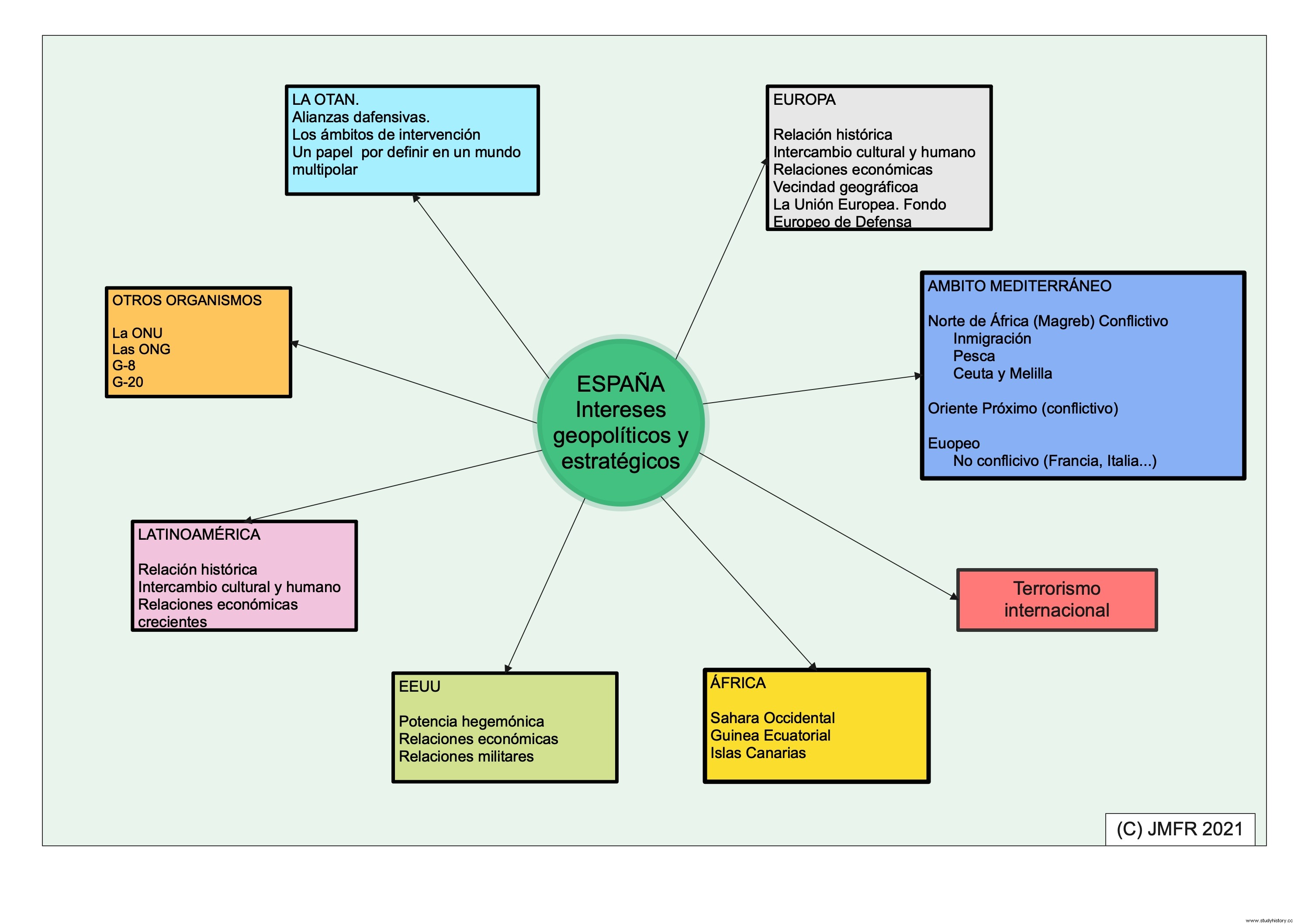During the 20th century, Spain was a country more focused on its internal problems than on international issues. Its non-participation in either of the two world wars freed the country from suffering and destruction, but instead it had its own civil war. The conflict occurred in the European context, yes, of the rise of fascism, which came to indicate the interweaving of Spanish history with European history. Similarly, many historians have seen the Spanish Civil War as a prelude to World War II.
Francoism implanted, both because it was consubstantial with its ideology and because it was forced, an international isolationism, becoming first a pariah and then an appendage of the United States already in the framework of the Cold War. For a long time, it based its international policy on maintaining more nominal than effective relations with Latin America and sustaining the rhetoric of friendship with some countries of the Arab world; These two elements allowed it to maintain a slight international presence.
The recovery of democracy made it possible to approach Europe, maintaining military and strategic ties with the United States. Entry into what is now the EU and into NATO definitively aligned Spain with Europe.
This secondary role in international relations and the absence of threatening confrontations with other countries, since the last wars in which Spain participated can be considered internal –the Civil War and the war in Morocco–, were creating an environment of disinterest among the population Spanish for international issues and international geopolitics. However, this lack of interest and the subsequent lack of information does not imply that these issues have ceased to be important.
Later, already in full democracy, the issue of peace was imposed as a widely accepted social value. But the more or less generalized lack of concern for this type of issue continued to prevail. It seems clear that the absence of conflicts that could turn into open wars –although we have been directly attacked by international terrorism– has kept alive the little social awareness that exists about our geostrategic interests.
Every State, including Spain, has a geopolitics that is conditioned by four factors:
- The geography. It is not an elective factor; the geographical situation of each country is what it is and sometimes it helps and other times it doesn't. Yves Lacoste already expressed and analyzed it decades ago. The geographical situation of Spain adds complexity to its geopolitical relations.
- The interests of its economy. And by this we refer not only to supply needs – raw materials or energy – but also to the presence of their companies and markets.
- The political and military alliances signed by the State.
- The control, either through simple surveillance or through military actions, of potentially dangerous or destabilized areas, whose instability can affect it in one way or another.

Bibliography.
Géré, F. (2005). The new geopolitics . Barcelona:Larousse.
Halimi, S.E. (2011). Geopolitical atlas . Valencia:Mondiplo Foundation.
Lacoste, Y. (1990). Geography:a weapon for war . Barcelona:Anagram.
Some websites in Spanish allow you to expand on the topic.
- Foreign Policy. International analysis in Spanish:https://www.politicaexterior.com/
- The World Order:https://theworldorder.com/
- Spanish Institute for Strategic Studies:http://www.ieee.es/
- Elcano Royal Institute:http://www.realinstitutoelcano.org/wps/portal/rielcano_es
- CIDOB Center for International Affairs:https://www.cidob.org/
